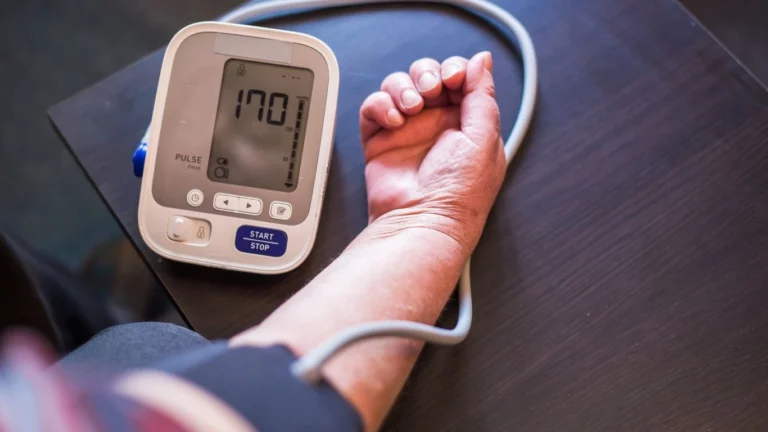GERD and Mental Health Connection: How Heartburn Affects Your Mind
Uncover the connection between GERD and mental health. Learn how dealing with heartburn can affect your mood and find tips to manage both your digestive health and mental well-being.
We’ve all experienced it: that uncomfortable burning sensation in your chest that makes you want to rip your shirt off and start chugging water like you’ve just run a marathon. That’s heartburn, my friend. But what if I told you that this common, annoying condition isn’t just about physical discomfort—it might actually be messing with your mental health, too? Sounds strange, right? But the link between GERD (gastroesophageal reflux disease) and mental health is a lot stronger than most people realize.

What is GERD, Anyway?
If you’re here, you probably already know that GERD is more than just a little heartburn. But let’s quickly break it down. GERD is a chronic digestive condition where stomach acid flows back into the esophagus, causing irritation. Symptoms can range from the occasional burning sensation in the chest to more severe issues like regurgitation of food, difficulty swallowing, and even coughing or wheezing. Basically, it’s a pain in the chest (literally) and a pain in your life.
But there’s a catch: GERD doesn’t just mess with your stomach. It can have a huge impact on your mind, too. Studies have shown that people with GERD are at higher risk for mental health issues like anxiety and depression. So, what’s going on here? Let’s dive into the connection between GERD and mental health.
The Vicious Cycle: GERD, Anxiety, and Stress

Here’s the thing: when you’re constantly dealing with GERD symptoms, it’s natural to feel frustrated, anxious, or even down. The unpredictability of GERD can create a constant sense of discomfort, which over time, can lead to mental health struggles. You’re just trying to get through the day, but now, every meal feels like a gamble. Will I feel fine, or will I spend the next few hours clutching my chest and wishing I could disappear?
For many people with GERD, this can lead to a state of heightened anxiety. And guess what? Stress and anxiety can actually make GERD worse! Yep, it’s a vicious cycle. Stress can trigger acid reflux by increasing stomach acid production, leading to more frequent or severe GERD episodes. So, the more you stress about your symptoms, the worse those symptoms can get. It’s like your mind and body are in a constant tug-of-war, with neither side winning.
How GERD Can Contribute to Mental Health Struggles
Let’s break down some of the key ways that GERD can mess with your mental well-being:
1. Chronic Discomfort Leads to Irritability
Imagine trying to enjoy a day out with friends, but you’re just focused on that constant burn in your chest. It’s hard to concentrate on anything else when your body is in discomfort. This chronic unease can lead to irritability and even mood swings. Over time, this can create tension in your personal and professional relationships, causing more stress and frustration.
2. The Fear of Eating Triggers Anxiety
Many GERD sufferers start to associate eating with pain. They become anxious about what they eat, fearing that their favorite foods will cause an episode. This anxiety around food can even result in disordered eating, like skipping meals or avoiding certain foods altogether. The constant fear of reflux can turn eating from a pleasurable experience into an anxiety-inducing one.
3. Sleep Disturbances Can Lead to Depression
If you’ve ever had GERD, you know that lying down after a meal can feel like you’re just begging for heartburn. Many people with GERD struggle to get a good night’s sleep because of nighttime acid reflux. Sleep deprivation, as you can imagine, can take a major toll on your mood and mental health. Over time, poor sleep can lead to symptoms of depression, making everything feel even worse.

The Impact of GERD on Social Life and Self-Esteem
Having GERD can also affect your social life and self-esteem. Picture this: you’re at a party, everyone’s enjoying themselves, and you’re just trying to hold it together. The last thing you want is to be that person who leaves the table early because of heartburn. It’s no fun to feel like GERD is controlling your life and preventing you from fully engaging with the world around you.
On top of that, there’s the embarrassment factor. Some people with GERD are self-conscious about belching, coughing, or needing to excuse themselves frequently due to their symptoms. These feelings can make you withdraw from social situations and isolate yourself, which can exacerbate feelings of anxiety and depression.
Managing GERD and Mental Health: Where to Start?

So, how do you break the cycle? It’s not easy, but there are steps you can take to manage both GERD and mental health issues. Here are a few ideas:
1. Stress Reduction Techniques
Finding ways to reduce stress can go a long way in improving both your GERD symptoms and your mental health. Try meditation, yoga, or even deep-breathing exercises. These practices can help lower anxiety, reduce stress, and calm your body, which can also have a positive effect on your digestive health.
2. Seek Professional Help
If you’re finding it difficult to cope with the mental health impacts of GERD, don’t hesitate to reach out to a therapist or counselor. Cognitive-behavioral therapy (CBT) has been shown to be effective for both anxiety and depression, and it can help you develop strategies to deal with the emotional side of GERD.
3. Medications for GERD and Anxiety
If you’re struggling with both GERD and mental health issues, it might be helpful to talk to your doctor about medications. There are treatments for GERD, like proton pump inhibitors (PPIs) and H2 blockers, that can help reduce acid reflux. For anxiety or depression, antidepressants or anti-anxiety medications might be beneficial, but these should always be discussed with a healthcare provider.
4. Healthy Lifestyle Choices
Eating a balanced diet, getting regular exercise, and maintaining a healthy sleep schedule are essential for managing both GERD and mental health. Certain foods, like spicy dishes, citrus, and fatty foods, can trigger GERD, so keeping track of what you eat can help minimize symptoms. Regular exercise can also help reduce anxiety and improve your mood, making it easier to cope with both conditions.
Conclusion
The connection between GERD and mental health is real, and it’s something that many people overlook. GERD isn’t just about stomach acid—it’s about how that acid can mess with your mind, too. If you’re dealing with both GERD and mental health struggles, it’s important to address both sides of the equation. By managing your GERD symptoms, reducing stress, seeking professional support, and making healthier lifestyle choices, you can break the cycle and improve both your digestive health and mental well-being.
Appendices
FAQs
- Can GERD cause anxiety? Yes, the discomfort and unpredictability of GERD can contribute to anxiety and stress.
- Does GERD make depression worse? The chronic pain and sleep disturbances caused by GERD can contribute to feelings of sadness or depression.
- Can stress make GERD symptoms worse? Absolutely. Stress can increase stomach acid production and trigger GERD episodes.
- What can I do to manage both GERD and anxiety? Stress-reducing activities like meditation, seeking therapy, and using medications prescribed by your doctor can help manage both conditions.
- Is there a connection between GERD and sleep disorders? Yes, GERD can cause sleep disturbances, which in turn can impact your mood and mental health.
- Can a therapist help with the mental side of GERD? Therapy, especially cognitive-behavioral therapy (CBT), can help you cope with the emotional effects of GERD.
- What foods trigger GERD symptoms? Common triggers include spicy foods, fatty foods, citrus, chocolate, and caffeine.
- How can I sleep better with GERD? Elevating the head of your bed and avoiding meals close to bedtime can help reduce nighttime reflux.
- Is it normal to feel embarrassed about GERD symptoms? It’s common to feel self-conscious, but remember that GERD is a medical condition, and you’re not alone.
- Can managing my GERD symptoms improve my mental health? Yes, when you manage GERD symptoms effectively, it can reduce stress and improve overall mental well-being.
References
- American Psychological Association. (2023). The Impact of Chronic Illness on Mental Health. Read Article
- National Institute of Diabetes and Digestive and Kidney Diseases. (2024). GERD and its Effects on Mental Health. Read Article
- Journal of Clinical Psychology. (2022). The Role of Stress in Gastrointestinal Disorders. Read Article
Disclaimer
The information provided in this article is for educational purposes only and does not substitute for professional medical advice. Always consult with your healthcare provider regarding any medical conditions or treatments.

Camellia Wulansari is a dedicated Medical Assistant at a local clinic and a passionate health writer at Healthusias.com. With years of hands-on experience in patient care and a deep interest in preventive medicine, she bridges the gap between clinical knowledge and accessible health information. Camellia specializes in writing about digestive health, chronic conditions like GERD and hypertension, respiratory issues, and autoimmune diseases, aiming to empower readers with practical, easy-to-understand insights. When she’s not assisting patients or writing, you’ll find her enjoying quiet mornings with coffee and a medical journal in hand—or jamming to her favorite metal band, Lamb of God.







